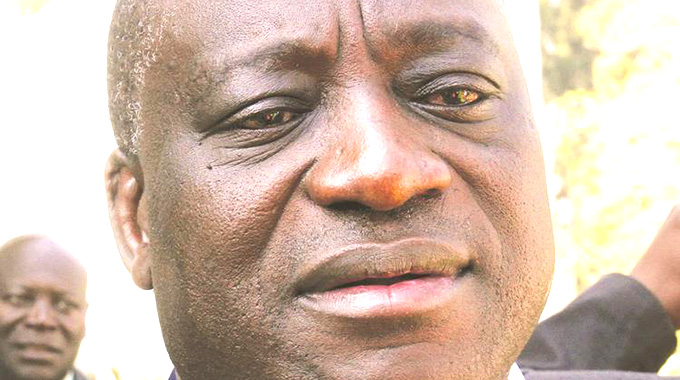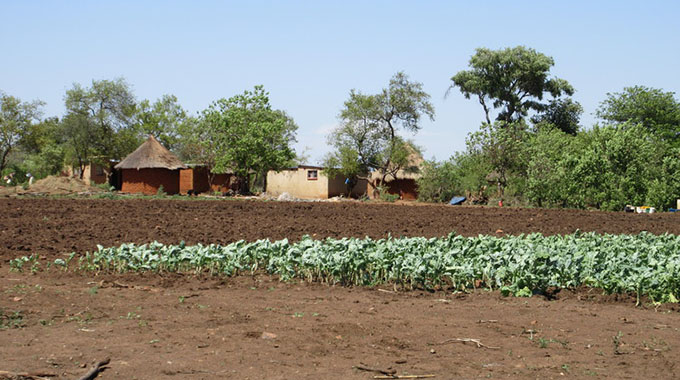Why public figures should stand against TB

Paidamoyo Chipunza Senior Writer
Tuberculosis (TB) is a quintessential disease of poverty, but untreated, it can easily spread from one person to the other regardless of class, race or social standing.
According to statistics, TB is one of the top 10 causes of death world-wide, ranking ninth, even above HIV and AIDS.
In 2017, an estimated 1,7 million people were dying of TB, 10 million developing TB and nearly 600 000 new incidences of drug-resistant TB were recorded globally.
Zimbabwe is one of the UN member states that committed to work towards ending TB by 2030 in the world. At the just-ended UN High-Level Meeting on TB (UN HLM), President Mnangagwa signed the TB declaration, clearly showing Zimbabwe’s commitment towards eliminating TB.
TB affects many people, especially in third world countries where in several communities, politicians, actors, singers and many other public personalities have at some point been treated of TB, proving that the poverty benchmark is just but the source of TB infection.
TB can easily be spread from one person to another through frequent close contact, thus family members, close friends and co-workers are likely to get TB quicker than anyone else.
While the disease is curable, sadly over four million people miss out on care and treatment globally, contributing to high number of TB deaths.
An event organised by Stop TB Partnership in conjunction with the United Nations and USAID dubbed “Our night with the Stars”, which took place on the eve of the first ever UN HLM in New York, USA, was one step in the commitment to end TB.
At the event, public personalities expressed concern over continued and high TB death rates for a curable disease. Public personalities, some of whom are TB survivors, rightly complained over inadequate resources to fight TB and applauded head of states for appending signatures to a new TB declaration to ensure that commitments are translated into action.
From discussions at the UN event, it was clear that stigma is still a huge challenge. South Africa’s Miss 2018, Tamaryn Green, who was diagnosed and treated of TB in 2015, said the only way to end TB deaths was de-stigmatising the disease.
Green, who survived TB when she was a third-year university student, has taken it upon herself to champion TB awareness through her campaign, “Break the Stigma”.
“There is no reason why people should continue to die from TB when it is not only preventable, but also curable. We must talk about it to reduce stigma and encourage people to seek treatment early when they suspect they have TB,” said Miss Green.
Indonesian fashion designer actress and singer Zaskia and her husband Irwansyah Sungkar, who is also a singer and actor, both shared how they fought and survived TB.
The couple, whose testimony was accompanied by a romantic song in their language, is now fighting TB through their music.
Their area of interest was to ensure enough information on TB signs and symptoms, prevention, treatment and care for the general public is made available. Of note was how adherence also remains a hindrance to the treatment of TB.
Afghanistan medical doctor Waheed Arian, who survived childhood TB, lamented the treatment and care of TB patients. Dr Arian’s treatment was long and painful, a scenario that could easily contribute towards adherence failure, thereby impacting on treatment success rate.
Having survived TB from a refugee camp following the war in Afghanistan, Dr Arian shifted his efforts towards fighting TB in conflict areas.
“My experiences from suffering from childhood TB, particularly in a refugee camp, kept me going. Initially, I thought I would bring medical doctors to treat TB in such settings, but later I came up with an innovation on telehealth.”
Through this innovation, he worked towards reaching out to TB patients in conflict areas such as Afghanistan.
Ugandan musician, popularly known as Bebe Cool, emphasised the need to increase resources towards the TB treatment.
In Uganda, TB claims more lives compared to HIV, yet TB receives little funding. He rightly challenged head of states who attended the UN HLM on TB to ensure that the disease received the attention it deserves for the world to end it by 2030.
As he aptly put it, the UN HLM should not be a meeting of promises. It should be the beginning of actual delivering funds because we cannot do this without funding.
“If TB is killing 80 000 people in Uganda and HIV is killing 60 000, why should more funding go towards HIV and not TB? “It is high time now we turn tables around, fund TB.”
Many other celebrities from different countries like Zambia, Mozambique, Nigeria, Tajikistan, Cambodia, Colombia and many more shared their experiences and how they were committed to fighting TB in their respective spheres of influence.








Comments